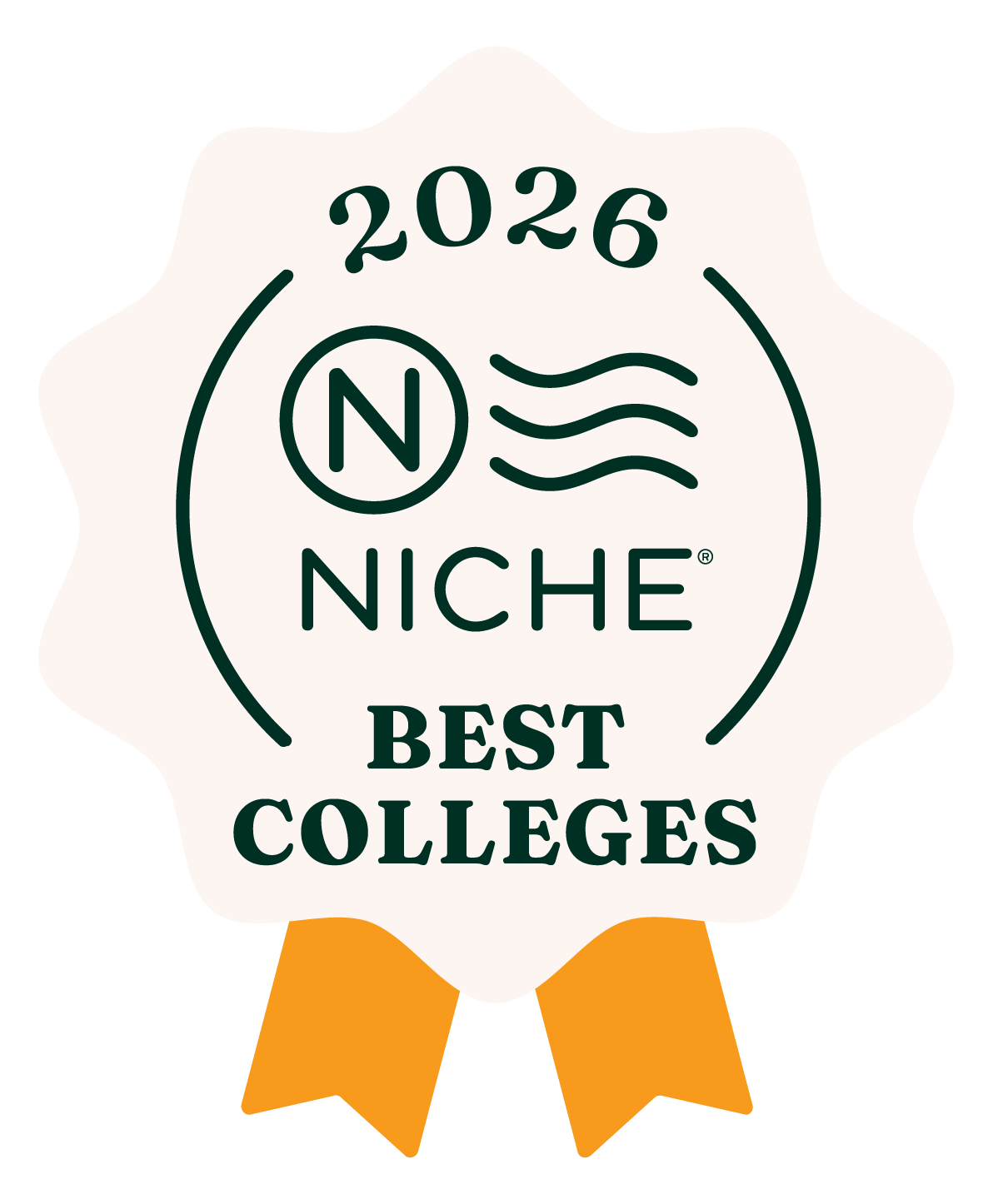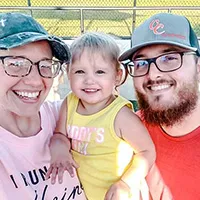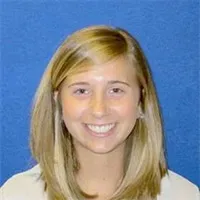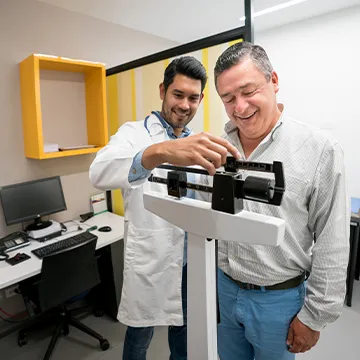RN to MSN
Associate Degree in Nursing (RN) to Master of Science in Nursing (MSN) — Nurse Practitioner
RN-MSN Nurse Practitioner Concentrations:
Preparing You To Excel
Our 100% online (excluding clinicals and residencies) RN to MSN program* is for registered nurses with an associate degree who want to achieve their MSN degree and become nurse practitioners. The program focuses on the advanced clinical skills that are in high demand, professionalism, and evidence-based practice for improved patient outcomes. We offer three concentrations to give you the opportunity to align your education with your career goals: Family Nurse Practitioner, Adult-Gerontology Primary Care and Psychiatric/Mental Health.
Our integrated exam preparation courses provide dedicated study resources that lead to impressive passing rates and graduate success. Wilkes nurses have pass rates on board certification exams that are consistently above the national average.
*A pass-through bachelor of science in nursing (BSN) is not granted as part of the RN to MSN program.
Admission Requirements
Applicants will be evaluated on an individual basis based on the following criteria.
- Associate degree in nursing (ADN with a 3.0 GPA) with official transcripts from an institution with programmatic (ACEN, NLNAC, CCNE) and regional accreditation*
- A current unencumbered RN license; APRN license if appropriate**
- Current resume or curriculum vitae
- Check state authorization
Note: One year of RN clinical experience is required by the start of NP clinical courses (typically in Year 2 of the program).
These admissions requirements represent the minimum eligibility requirements for programs. Admission committee members reserve the right to request additional information from candidates as needed for a more in-depth review of qualifications.
Transfer Credits: All graduate programs will allow 9 total transfer credits (must be a 3.0 or higher).
* Students who graduated from a non-programmatically accredited institution and meet all other admission requirements will be evaluated on a case-by-case basis. Admission is not guaranteed.
** Applications presenting a history of disciplinary action on professional licenses will be subject to an additional review process by the Special Licensure Discrepancy Committee of the University.
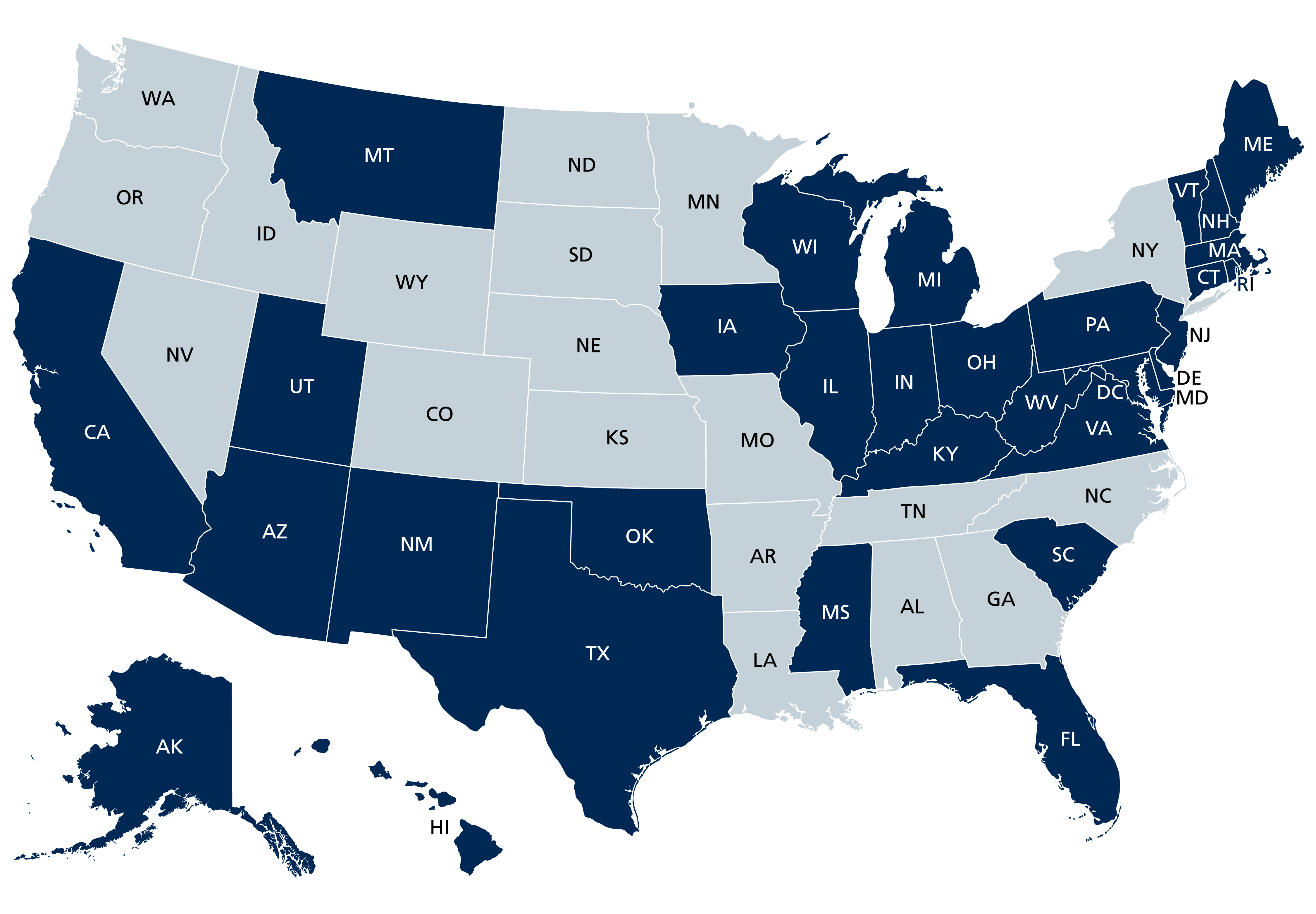
Please note that prior to beginning and continuing in any of the nursing programs with Wilkes University, you must be located in an authorized state and be licensed in the state where you intend to complete your clinical activities, per that state’s clinical requirements. Your location (which may be your state of residency) and clinical activity do not need to be in the same state, as long as Wilkes is authorized in both states.
Quality Education Within Reach
Wilkes University prides itself on providing quality education to all who are willing, regardless of their socioeconomic, ethnic or religious background. You’ll find our competitively priced tuition and caliber of faculty hard to beat — save $10k by enrolling in our RN to MSN program as compared to first getting your bachelor's and then your master's in nursing. Your return on investment is looking good!
RN to Bachelor's
in Nursing
Average
Total program cost
$13,720
Time to complete
14 months
+
MSN-
FNP
Average
Total program cost
$35,800
Time to complete
30 months
Total cost: $49,100
Total time to complete: 44 months
vs
RN to MSN-FNP
Program
Total program cost
$42,444
Time to complete
36 months
Save $10K on tuition
Graduate almost 7 months sooner
Source: Proprietary research
Note: A pass-through bachelor's degree is not granted as part of the RN-MSN program. *Totals presented are maximum tuition amounts not including fees.
Clinical Placement And Support
Our Clinical Placement Team provides proactive support and assistance. Securing a clinical site takes a lot of work; there’s no way around it, except at Wilkes. And there’s more:
- You’ll also have a dedicated student success advisor to help you from enrollment through to graduation.
- These resources are offered at no additional charge and are built into the program.
* The baccalaureate degree in nursing/master's degree in nursing/ Doctor of Nursing Practice and post-graduate/APRN certificate programs at Wilkes University are accredited by the Commission on Collegiate Nursing Education (www.ccneaccreditation.org)
More About Clinical Placement Support
The Wilkes Clinical Placement team works with you to offer a high-quality placement experience that is compliant, meets the University and national guidance for clinical requirements and prepares you for success in your future practice.
How Does the Clinical Placement Process Work?
The Placement Team will collaborate with you to help you secure quality placement sites and preceptors. In addition to completing a Placement Intake Form, you will be responsible for completing all of your clinical clearance requirements prior to the start of the clinical placement process.
What Value Will the Placement Team Provide?
The Placement Team will help you identify and potentially secure quality placement sites. This process allows you to focus on the online coursework and the core competencies that will direct your placement experience. As an active participant in the placement process, providing referrals from your community increases your chances of securing quality sites and preceptors.
When Will I Receive My Placement Details?
You will receive a notification from your dedicated Placement Coordinator prior to each clinical start date. Once the placement has been confirmed and communicated, you are encouraged to begin working with your preceptor directly to establish a schedule for the semester.
How Should I Prepare for Clinicals?
You are not alone in preparing for clinicals! Your Placement Coordinator will be with you through the entire process by answering your questions, providing a clinical orientation, verifying your clinical clearances and walking you through the clinical checklist. The checklist details the dress code, clinical tools and professional expectations to ensure your success throughout each rotation.
Curriculum Sample
To see the full program curriculum, access your free program guide.
This course is designed to facilitate the transition of RN students from other educational routes to baccalaureate education and professional nursing practice. The course focuses in particular on the integration of knowledge, skills and attitudes in the development of the professional nursing role to enhance quality outcomes for individuals, families and populations across all healthcare settings and in complex healthcare environments. Students will begin advancing their knowledge on the transformational concepts related to a master’s education in nursing. (Credits: 7)
This course prepares the RN to MSN student for professional role development in emerging healthcare delivery systems. Students will be required to synthesize knowledge from previous nursing and supportive courses to manage care in an area of clinical practice consistent with career goals. Students will continue advancing their knowledge of the transformational concepts related to a master’s education in nursing. (Prerequisite: NSG-410; Clinical hours: 45; Credits: 3)
Offered in Spring 2021, accompanied with NSG 411 (Credits: 1).
Get More Program Details
- Applications are currently being accepted for next intake
Read More About Wilkes RN to MSN

Preparing for Licensure Exams: Strategies for Online Students
Preparing for licensure exams is crucial for nursing students, including those in online programs. Success comes from joining study groups, following structured study plans, and utilizing resources… Read More

Top 8 Benefits of an RN to MSN Online Program
For nurses who currently have an associate degree and would like to become an NP, an Associate Degree in Nursing to Master of Science in Nursing (RN to MSN) program offers many benefits. Read More

Is a Master of Science in Nursing (MSN) Right for You?
If getting an MSN degree meant an increase in professional autonomy, income and career mobility, would you be interested? Read More
RN to MSN Program Outcomes
Becoming a nurse practitioner is a smart move for career advancement. Nurses are in demand in hospital settings and a variety of other practice areas, and the need will only increase as our country's population ages. According to the U.S. Bureau of Labor Statistics, projected job growth for NPs is expected to increase 52% by 2029, and the average NP salary is $111,680.
The Master of Science in Nursing program at Wilkes University prepares students to:
- Engage in lifelong learning in a constantly evolving and multicultural world.
- Demonstrate competence in the development of scientific inquiry relevant to clinical practice, administration, or education.
- Utilize leadership strategies that foster improvement of patient and population health.
- Advance nursing practice by translating evidence in a variety of roles and areas of practice.
- Improve healthcare outcomes through interprofessional collaboration.
- Participate in lifelong learning as a part of advancing nursing practice.
What Will You Learn in the RN to MSN Program?
Wilkes academic programs are helping to fulfill the great demand for nurse practitioners in the U.S. Our MSN program curriculum develops you in the following areas so that you can:
- Prepare for advanced practice from clinical, theoretical and professional standpoints.
- Develop your capabilities in research and reasoning, diagnosis and critical thinking.
- Gain substantial insight into major healthcare systems and policies.
- Deliver informed care with respect to patient populations and cultural perspectives.
How do Wilkes nurses demonstrate excellence?
By translating their knowledge into success on certification exams—proving they are confident and competent when it matters most. The table below highlights certification pass rates for Wilkes nurses across NP tracks, consistently exceeding national averages in recent years.
| YEAR 2023 | ||
|---|---|---|
| Program | Certification Pass Rate: All Takers | National Pass Rate |
| Psychiatric/Mental Health Nurse Practitioner (PMHNP) | 95.4% | 90% |
| Family Nurse Practitioner (FNP) | 84% | *74% |
| Adult-Gerontology Primary Care Nurse Practitioner (AGPCNP) | 91.6% | 80% |
*AANP National Pass Rate 2022, most recent data available
Focus Your Practice
Our three MSN concentrations give you the opportunity to align your advanced degree with your career goals in the nursing field. Choose the track you’re most passionate about and explore curriculum, tuition, admission requirements and more.
FAQs
Admissions
Note: The length of time listed is based on the total amount of required courses for each program. An analysis of previous coursework may shorten total length of time to complete.
Course length is 15 weeks, and each program varies.
Associate Degree in Nursing (RN) to Master of Science in Nursing (MSN) — Nurse Practitioner program:
- Family Nurse Practitioner (FNP) concentration: 19 courses / 9 terms / 3 years
- Adult-Gerontology Primary Care Nurse Practitioner (AGPCNP) concentration: 17 courses / 8 terms / 2.6 years
- Psychiatric/Mental Health Nurse Practitioner (PMHNP) concentration: 18 courses / 9 terms / 3 years
Information can be found on our Get Started page, and by completing the form at the top of the page. Or, you can contact an enrollment advisor by emailing us at admissions@onlinenursingdegrees.wilkes.edu, calling us at 888-413-5633 , or scheduling a time to chat.
We do the heavy lifting for you. For more information on the nursing clinical placement process, visit our Clinical Placement Services page, access your free program guide , or email us at admissions@onlinenursingdegrees.wilkes.edu. You can also call us directly at 888-413-5633 or schedule a time to speak with us.
No, there are no GRE or GMAT requirements to enroll.
Yes, they're accredited by the Commission on Collegiate Nursing Education (CCNE)*.
*The baccalaureate degree in nursing/master’s degree in nursing/doctor of nursing practice, and post-graduate APRN certificate programs at Wilkes University are accredited by the Commission on Collegiate Nursing Education (www.ccneaccreditation.org).
Financial Aid
Yes, financial aid is available to qualifying nursing students. Please fill out a form or schedule an appointment with an Enrollment advisor to learn if you qualify for financial assistance. You can also give us a call at 888-413-5633 . We're happy to help!
Tuition
Note: Tuition listed is based on the number of required courses for each program. An analysis of previous coursework may allow for fewer courses and a lower net cost, when applicable.
Each program is different but highly competitive. A review of official transcripts will determine a student’s course of study.
Associate Degree in Nursing (RN) to Master of Science in Nursing (MSN) — Nurse Practitioner program
Tuition totals presented are maximum amounts not including fees
- Psychiatric/Mental Health Nurse Practitioner (PMHNP) concentration: $41,658
- Family Nurse Practitioner (FNP) concentration: $42,444
- Adult-Gerontology Primary Care Nurse Practitioner (AGPCNP) concentration: $40,086
Other
Yes. They’re accredited by the CCNE*.
*The baccalaureate degree in nursing/master’s degree in nursing/doctor of nursing practice, and post-graduate APRN certificate programs at Wilkes University are accredited by the Commission on Collegiate Nursing Education (www.ccneaccreditation.org).
Excluding nursing clinicals, all coursework is 100% online. Each course experience is primarily asynchronous.



